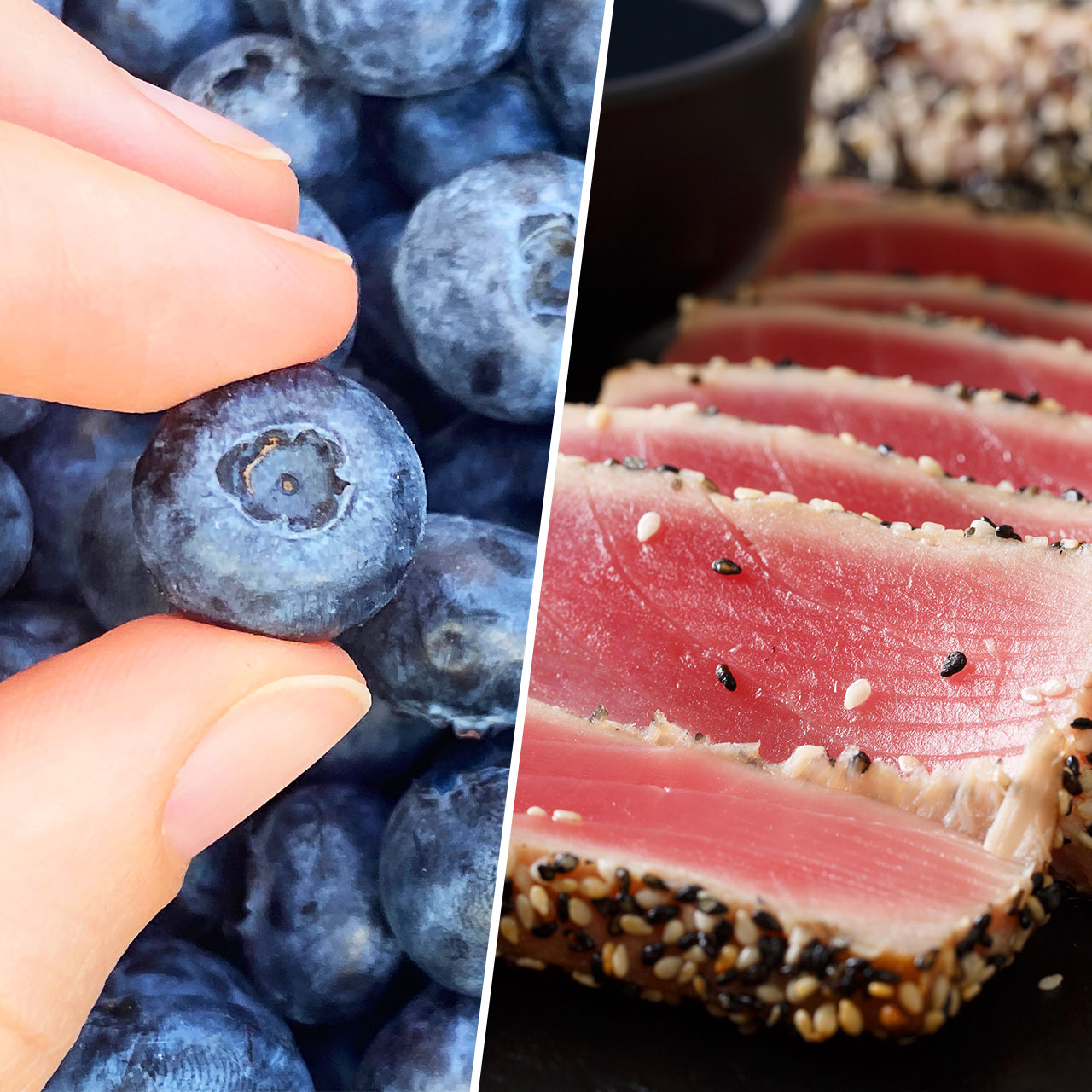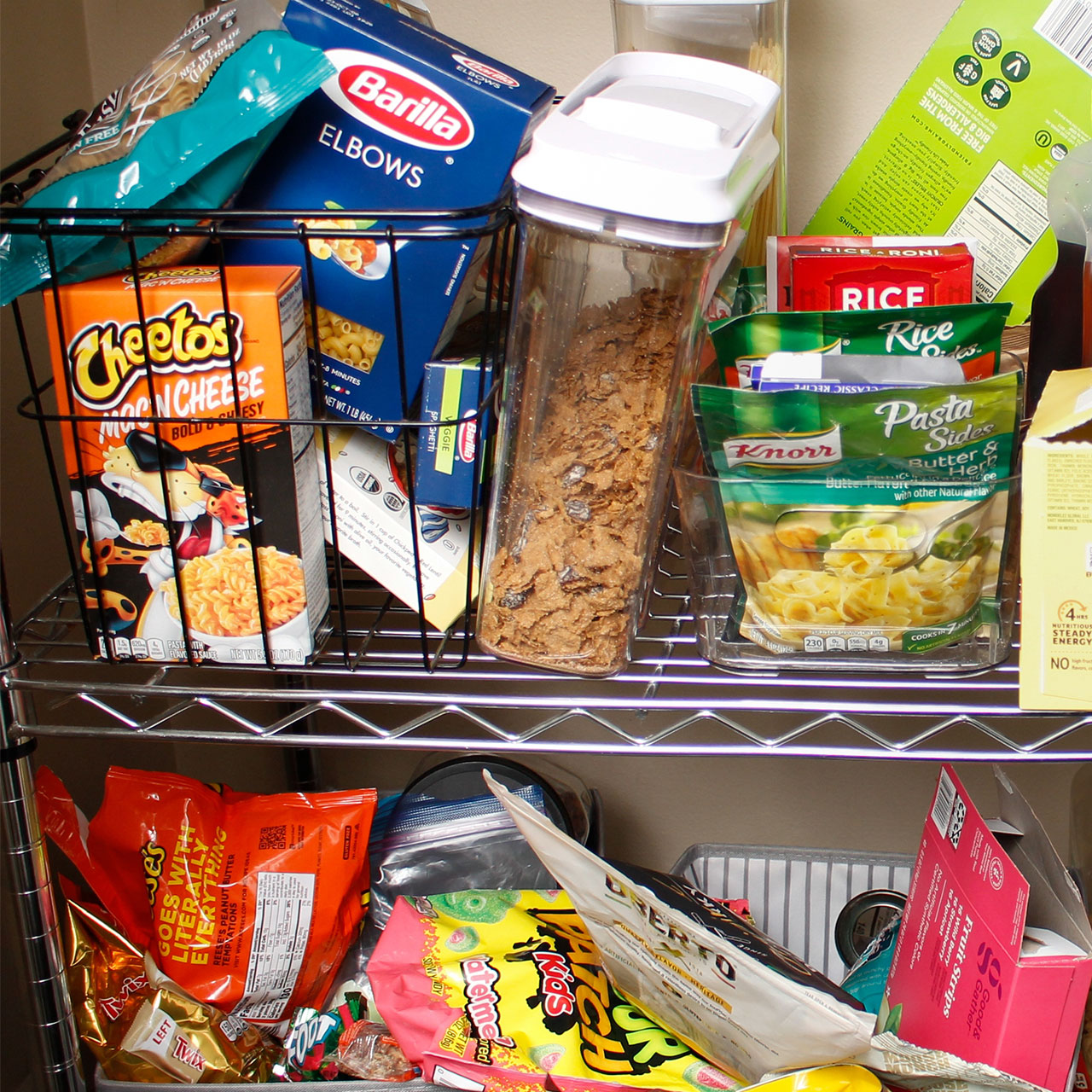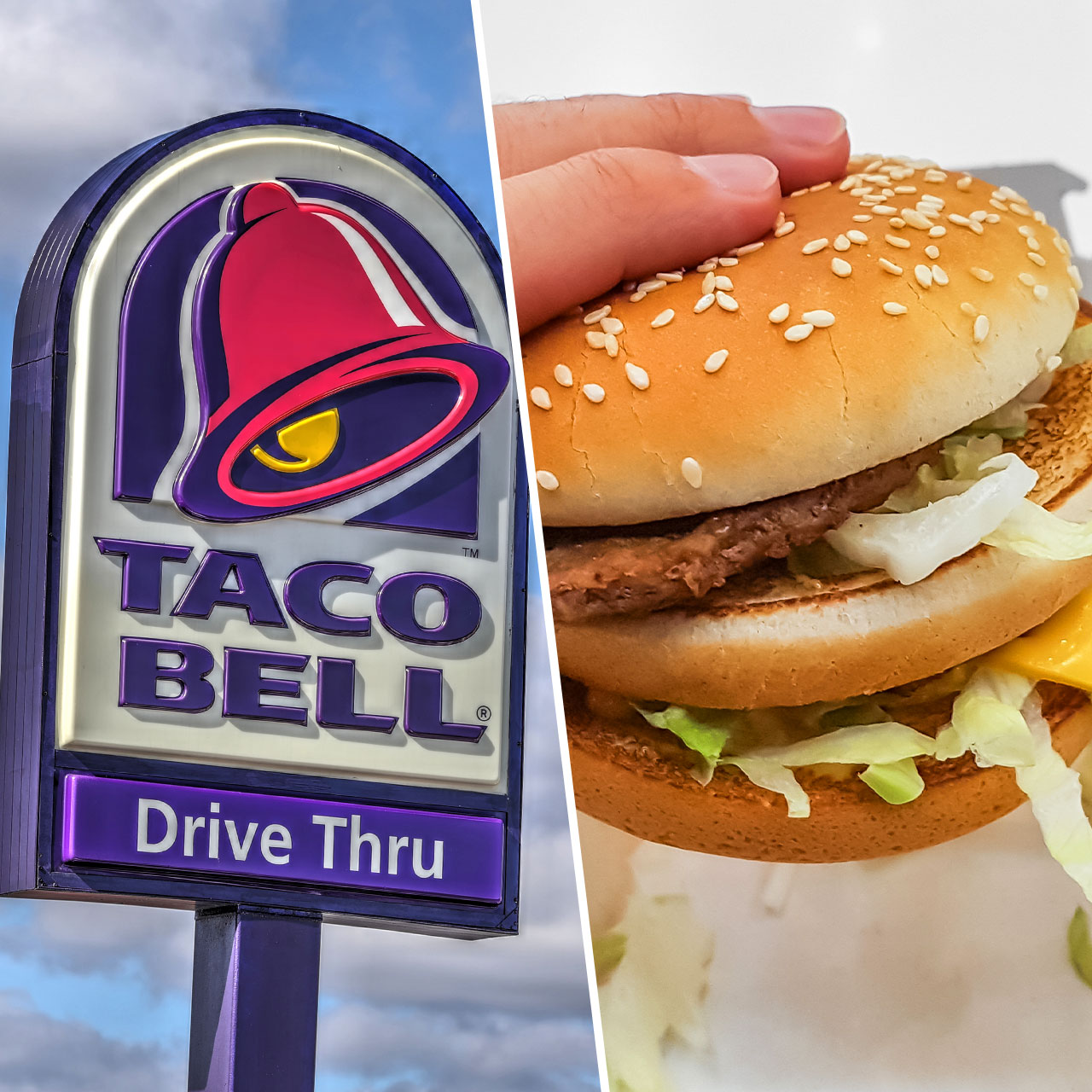Metabolism is the process by which our bodies convert what we eat and drink into energy. As we age, especially after 40, our metabolism tends to slow down, making it more challenging to maintain a healthy weight and energy levels. Certain foods can further impede metabolic efficiency, exacerbating this natural decline. Understanding which foods can slow down metabolism is crucial for those over 40, as avoiding these can help sustain better health and vitality.
We checked in with various health experts who revealed to us 14 different foods that can potentially slow down your metabolism. They revealed that cookies, donuts, white bread, and many more are among the foods that you should avoid eating if you want to boost your metabolism. Read on to discover all 14 and why they are harmful for metabolic health.


1. Donuts
Donuts, while indulgently delicious, can contribute to a slow metabolism when consumed in excess due to their high sugar, unhealthy fat, and refined flour content.
Sara Chatfield, registered dietitian and nutritionist at Healthcanal, says that as we age, “our metabolism declines so consuming high calorie [foods] can easily lead to weight gain.” Donuts “contain saturated fats that can lead to inflammation and increase your risk of heart disease.” They’re also “highly processed,” and “eating highly processed foods regularly can cause weight gain and has been linked to multiple chronic diseases."
Incorporating snacks such as fresh fruit, yogurt parfaits, or homemade energy bars can satisfy sweet cravings while promoting a steadier metabolism and overall well-being.

2. Cereals
Sugary cereals are a popular breakfast choice for many, known for their sweet and appealing taste. However, their high sugar content can have implications for metabolic health.
"Sugary cereals are one of the most unhealthy processed foods you can have. They are loaded with sugar, sodium, and refined carbohydrates," Jesse Feder, RDN, CPT at My Chrons and Colitis Team says. "These things, when eaten in high amounts and consistently, can lead to obesity, high blood pressure, diabetes, and heart disease. The highly processed and refined ingredients typically give you a jolt of energy since they are able to be digested very quickly. This then causes a crash in our blood sugar, and can slow your metabolism."
Consider choices like oatmeal, Greek yogurt with berries, whole grain or bran cereals with low added sugars and high fiber content to sustain energy levels. Chia seed pudding offers a delicious and nutrient-dense option when prepared with milk and topped with fruits or nuts, while eggs, prepared in various ways, are an excellent source of protein and essential nutrients.

3. Processed Meats
Processed meats, such as sausages, bacon, and deli meats, are often high in saturated fats. Excessive intake of saturated fats can lead to inflammation and insulin resistance, which can slow down your metabolism.
Mary Sabat, MS, RDN, LD from Ace Personal Trainer, says, "Beef jerky, sausages, and hot dogs are high in unhealthy fats and additives that can contribute to weight gain, including visceral fat."
Excessive consumption of processed meat snacks can lead to an increased calorie intake and may promote overeating due to their addictive flavors and convenient packaging.
To replace processed meat snacks with healthier options, consider choosing whole foods like fresh or dried fruits, vegetable sticks with hummus, nuts, and seeds for their nutrient density and satiety. Greek yogurt, cheese, hard-boiled eggs, and avocado slices offer protein and healthy fats.

4. Frozen Mozzarella Sticks
The frying process used to prepare these snacks often results in a significant calorie and fat content, which, when consumed in excess, may lead to weight gain and metabolic issues.
Michelle Saari, MSc, RD from eHealth project, says that this cheesy snack "often contain trans fats, used in oils for frying, which can negatively affect your cholesterol levels and heart health, potentially slowing down your metabolism. The breading, made from refined flour, contributes to the rapid spikes in blood sugar levels, leading to insulin resistance when consumed frequently.”
Healthier alternatives involve choosing homemade or store-bought versions that are baked instead of fried, reducing the overall fat content. Additionally, opting for part-skim mozzarella or exploring alternatives like baked cheese bites made from whole grains or alternative flours can provide a lighter, more nutrient-dense option.

5. Cookies
Laden with refined sugars, unhealthy fats, and artificial additives, regular consumption of cookies can contribute to insulin resistance, a sluggish metabolism, and unwanted weight gain.
Valeria Dolbel, founder of Beauty Diets, says treats like pies, cookies, and cakes "are the food category that contributes the most calories accounted for added sugar intake yet provide little to no nutritional value."
"Low fiber and highly refined grains increase the risk of weight gain and higher levels of belly fat," Dolbel explains, adding that your favorite cookie likely "causes belly fat due to highly-processed ingredients such as butter, sugar, and refined flour."

6. Granola Bars
Granola bars, often touted as a healthy on-the-go snack, may not always live up to their nutritious reputation. Despite their convenience and wholesome image, many commercial granola bars are packed with refined sugars, processed grains, and hidden fats, which can impact your metabolism over time.
"Granola bars are the worst 'healthy' food for weight loss because they are full of inflammatory ingredients that prevent weight loss, including refined sugars and grains. Many food manufacturers claim that their granola bars are healthy because they contain oats, but the added ingredients in granola bars are what makes them so unhealthy," says Heather Hanks, a nutritionist at Medical Solutions Barcelona.

7. Nuts
Nuts are generally considered a healthy snack due to their high content of healthy fats, protein, and fiber. However, if consumed in excess, they can potentially slow down metabolism and hinder weight loss efforts for several reasons. Nuts are high in calories and fats, even though these are healthy fats. Consuming large amounts of nuts can lead to a caloric surplus, which can slow down weight loss efforts and overall metabolism. Due to their small size and high palatability, it is easy to overeat nuts without realizing it.
"Nuts like almonds are rich in Vitamin E, a powerful antioxidant, along with heart healthy fats that reduce risk of heart disease. However, just one handful can hold 150-200 calories, which is more calories than a homemade chocolate chip cookie," Destini Moody, registered dietitian and certified specialist in sports dietetics, states.
Moody also makes sure to highlight that while almonds are always a better choice than cookies, it's important to enjoy nuts as a part of a well-rounded diet while being mindful of portion sizes.

8. Cheese Puffs
While cheese puffs come in a variety of flavors, from classic cheddar to spicy jalapeño, their nutritional profile remains largely the same. Often made from highly processed cornmeal or other refined grains, cheese puffs are typically loaded with unhealthy fats, sodium, and artificial additives.
These ingredients, combined with their high carbohydrate content, can lead to rapid spikes in blood sugar levels and contribute to insulin resistance over time.
Additionally, the excessive consumption of refined carbohydrates and unhealthy fats found in cheese puffs can disrupt metabolic function, leading to a slowed metabolism and increased fat storage, ultimately contributing to weight gain.
"Cheese puffs and similar cheesy snacks are often made with partially hydrogenated oils, which contain trans fats," Sabat warns. "These trans fats raise bad cholesterol (LDL) levels and lower good cholesterol (HDL), contributing to arterial plaque buildup."
"These cheesy snacks are not only highly processed but also contain high levels of saturated and trans fats. Regular consumption can lead to elevated cholesterol levels, arterial inflammation, and the buildup of fatty deposits in the arteries," she states.

9. Muffins
Many store-bought muffins are loaded with refined sugars, processed flours, and unhealthy fats, regardless of their flavor variety. Whether it's blueberry, chocolate chip, or banana nut, these muffins typically contain high levels of refined carbohydrates, which can quickly spike blood sugar levels and contribute to insulin resistance over time.
"You may call them muffins, but my brain says, cake. Whether they're from a bakery or a box, traditional muffins are high in calories and fat, which could lead to belly fat over time. Some of them contain over 350 calories per muffin," Lisa Andrews, MEd, RD, LD, a registered dietitian nutritionist, warns.

10. White Bread
White bread, often made from refined flour, can be linked to a slow metabolism when consumed excessively. This can contribute to insulin resistance over time, hindering metabolic efficiency.
Registered dietitian and nutritionist Krutika Nanavati says that "Its high glycemic index can trigger insulin spikes and promote fat storage around the abdomen." She adds that "the refining process also robs it of fiber and vital nutrients, stripping away the bran and germ components and leaving behind only the endosperm. Consequently, white bread lacks the nutritional value necessary for a balanced diet."
Exploring options like sprouted grain bread or bread made from alternative flours such as almond or quinoa can offer a nutrient-rich and metabolism-friendly choice, promoting sustained energy levels and overall metabolic health.

11. Store-bought Trail Mix
Many commercially available trail mixes contain a mix of nuts, dried fruits, and sometimes candies or chocolate. While nuts offer beneficial nutrients, the overall calorie density of trail mix can be high, especially when combined with sugary additions. The dried fruits often contain added sugars, and the chocolate or candies contribute extra calories and refined sugars.
Andrews elaborates further and says, "Trail mix, similar to granola bars, may look innocent. However, the calorie load can be quite high between the dried fruit, nuts, and chocolate pieces in the bag. Unless the serving is portioned out, it's easy to overeat these crunchy, chewy nuggets, which can lead to weight gain and a sluggish metabolism."

12. Flavored Yogurt
Flavored yogurt, though often marketed as a convenient and tasty snack, can be linked to a slow metabolism when laden with added sugars and artificial flavorings. The excessive sugar content in flavored yogurts can contribute to insulin resistance, potentially disrupting metabolic processes over time.
"Some flavored yogurts can be high in added sugars, which can contribute to weight gain and other health problems if consumed in excess," Lisa Richards, registered nutritionist and creator of The Candida Diet, adds.
"Furthermore, weight gain occurs when there is a calorie surplus, which means consuming more calories than the body burns through physical activity and normal metabolic processes."
Choosing healthier alternatives involves opting for plain (Greek yogurt is a great alterntive), unsweetened yogurt and adding natural sweetness through fresh fruits or a drizzle of honey.

13. Candies
Despite the wide array of flavors and varieties available, from fruity gummies to rich chocolates, candies cause a rapid spike in blood sugar levels, leading to increased insulin production to help regulate glucose levels.
Moreover, the high calorie content of candies, often devoid of essential nutrients, can contribute to a slowed metabolism and increased fat storage, ultimately leading to weight gain.
Sabat elaborates on candies by pointing out their high-sugar, low fiber content and artificial ingredients. "Most candies contain high amounts of added sugars, such as sucrose and high fructose corn syrup. These sugars can feed harmful bacteria in the gut, leading to an imbalance in the gut microbiome. An overgrowth of harmful bacteria can result in digestive issues, inflammation, and compromised gut health. Fiber acts as a prebiotic, nourishing beneficial gut bacteria and promoting a balanced gut microbiome. Without enough fiber, the gut's ecosystem can become imbalanced, potentially leading to gastrointestinal problems," Sabat states.

14. Doritos
Doritos, with their tantalizing crunch and bold flavors, are a staple in many snack cabinets. However, their status as a highly processed snack comes with potential health consequences. Packed with refined carbohydrates, unhealthy fats, and a laundry list of artificial ingredients, these crunchy snacks are to be avoided for several reasons.
"They are often fried, made with inflammatory omega-6 oils, refined carbohydrates, and a combination of fat and carbs that cause oxidative stress in the body," nutritionists Trista Best from Balance One Supplements explains.
"Doritos are one of the worst types of chips to consume, regardless of flavor." As Best points out, "They are made with artificial colors and flavors along with refined carbs. This form of carb causes a rapid increase in glucose, which also increases the body's fat-storing rate."


























